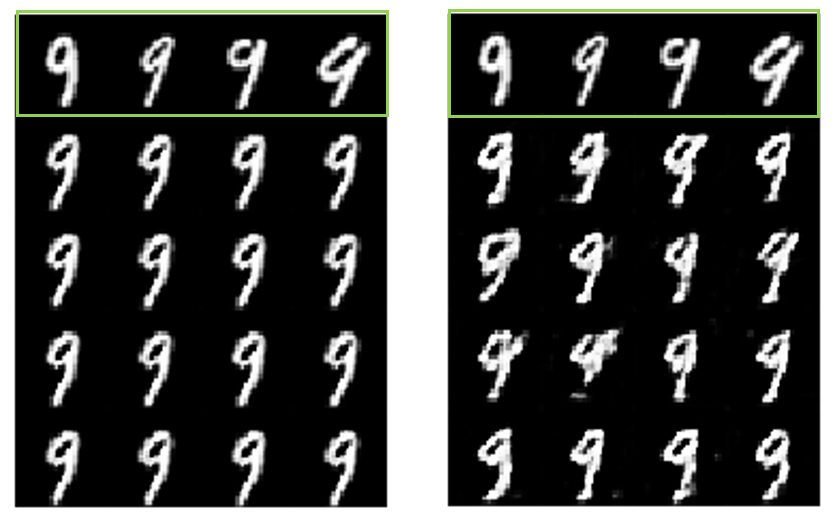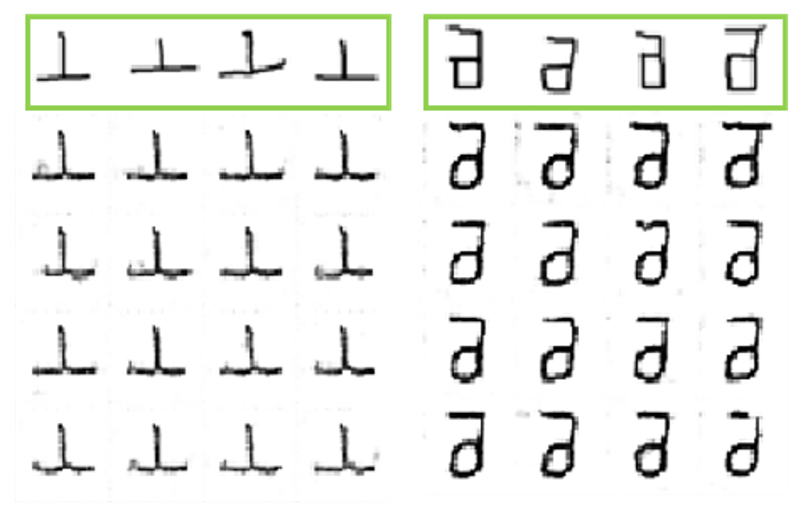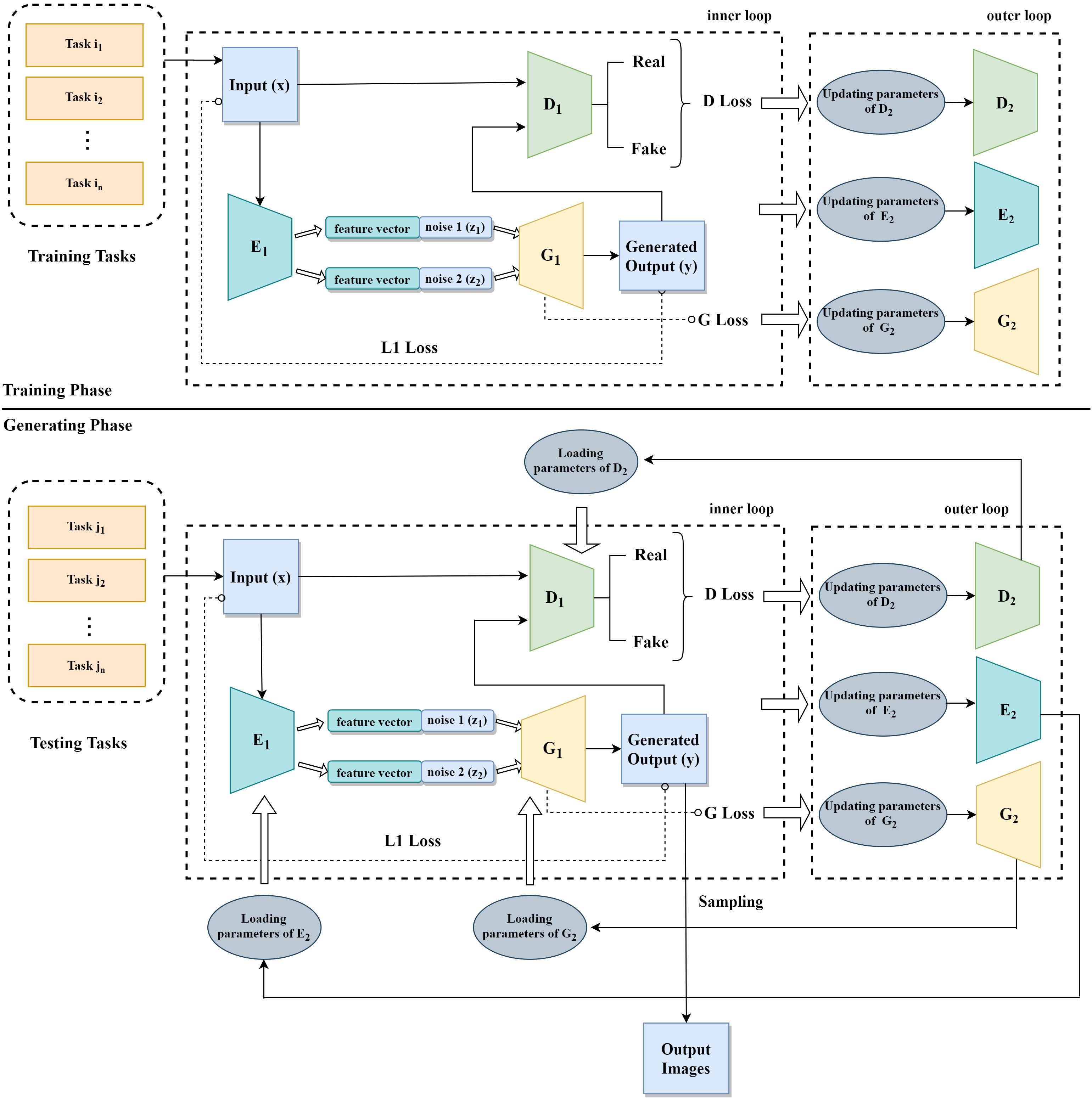The official Pytorch implementation of IEEE Transactions on Multimedia 2021 Fast Adaptive Meta-Learning for Few-Shot Image Generation (FAML).
If this code is useful for you, please consider citing the paper as following detail:
@article{phaphuangwittayakul2021fast,
title={Fast Adaptive Meta-Learning for Few-shot Image Generation},
author={Phaphuangwittayakul, Aniwat and Guo, Yi and Ying, Fangli},
journal={IEEE Transactions on Multimedia},
year={2021},
publisher={IEEE}
}
Fast Adaptive Meta-Learning (FAML) based on GAN and the encoder network is proposed in this study for few-shot image generation. The model can generate new realistic images from unseen target classes with few samples of data.
$ git clone https://github.com/phaphuang/FAML.git
$ cd FAML
$ pip install -r requirements.txt
- MNIST: 10 balanced classes link
- Omniglot: 1623 handwritten characters from 50 different alphabets. Each of the 1623 characters was drawn online via Amazon's Mechanical Turk by 20 different people link
- VGG-Faces: 2395 categories link
- miniImageNet: 100 classes with 600 samples of 84×84 color images per class. link
The default folder of datasets are placed under data.
MNIST and Omniglot can be automatically downloaded by running the training scripts.
VggFace
- Downloaded the modified 32x32 VggFace and 64x64 VggFace datasets and their training and validation tasks.
- Place all downloaded files in
data/vgg/
miniImageNet
-
Downloaded the modified 32x32 miniImageNet and 64x64 miniImageNet datasets and their training and validation tasks.
-
Place all downloaded files in
data/miniimagenet/
$ python train.py --dataset Mnist --height 32 --length 32
View all options for different training parameters:
$ python train.py --help
MNIST
 Omniglot
Omniglot
 VggFace
VggFace
 miniImageNet
miniImageNet

Some of the codes are built upon FIGR and RaGAN. Thanks them for their great work! FAML is freely available for non-commercial use. Don't hesitate to drop e-mail if you have any problem.
